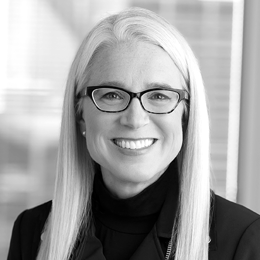Supporting the LGBTQ+ at work
The Network of Executive Women (NEW) was established in 2001 and, over that time, most would say that workplaces have gotten better for LGBTQ+ people. Yet there is still a major disconnect at many organizations between stated progress and the day- to-day experience of being an LGBTQ+ person at work.
In its 2018 A Workplace Divided study, the Human Rights Campaign (HRC) was able to say the number of employees who were closeted at work had dropped. Unfortunately, that number had only dropped by 4%—from 50% to 46%—over the 10 years since its previous study.
As the HRC stated in the report, “LGBTQ workers lack faith in accountability systems, sometimes with good reason.” HRC found that workers don’t report hearing their co-workers speak negatively about LGBTQ+ people primarily because they don’t think anything will be done to stop it, and fear harming their relationships with co-workers.
For LGBTQ+ employees to be their full selves at work, organizations need to prove they are worthy of their employees’ trust. And that starts at the top.
ZERO TOLERANCE FOR INTOLERANCE
The HRC reported that one in 10 employees has heard a supervisor making negative comments about LGBTQ+ people. This leads to employees who feel excluded from company culture, 31% of whom state they feel depressed at work. Knowing you may have depressed employees who feel denigrated by their supervisors should be enough to prompt any employer to take swift and decisive action.
Allyship can only begin when accountability has been established. LGBTQ+ employees need to hear clearly stated policies from their employer that bans discriminatory language from the workplace, and encourages those who hear it to report it via an unbiased accountability system. Forty-five per cent of LGBTQ+ people agreed with the statement: “enforcement of the non-discrimination policy is dependent on their supervisor’s own feelings towards LGBTQ people,” adding to the pressing need for an impartial resource outside their direct supervisor.
Fifty per cent of LGBTQ+ workers state they believe they are the only LGBTQ+ person in their workplace. Ensuring that employees who feel isolated are secure in the knowledge their identity will be respected could not be of more critical importance for their comfort, happiness and retention.
ALLYSHIP—ACTIONS MEAN MORE, BUT WORDS MATTER
Allyship begins with education, and there is no better way to start than with robust education for employees on unconscious bias and the realities experienced by the LGBTQ+ community. Fifty-three per cent of LGBTQ+ people reported hearing jokes about their community at work, while just 37% of non-LGBTQ+ employees heard them. This gap shows unconscious bias in the minds of many non-LGBTQ+ employees, which, while unintentional, can only change with education.
Respecting pronoun usage is another way to show your allyship. There are many wonderful resources out there to help explain why this small sign of respect can have outsized impact on the well-being of those around you. Remember, educating yourself should be the order of the day, and also arranging for professional education for your team. Relying on LGBTQ+ co-workers to educate you adds additional stress to an already stressful situation.
STAND BY YOUR TEAM AND THEY’LL STAND BY YOU
After education, however, comes action. Allies need to be willing to speak up at work when they hear a co-worker, fellow supervisor, or even fellow board member denigrating LGBTQ+ people. “It’s just a joke” is never an excuse for making LGBTQ+ people feel like they don’t belong in your workplace.
Twenty per cent of LGBTQ+ people working in an unwelcoming environment said they were looking for other jobs, and 17% of LGBTQ+ people report being exhausted with trying to hide their identity at work. If nothing else, the cost of replacing employees lost to prejudice—and the strong evidence that diverse workplaces lead to better business outcomes—should motivate businesses to respond!
This article appeared in Canadian Grocer‘s March/April 2021 issue.

